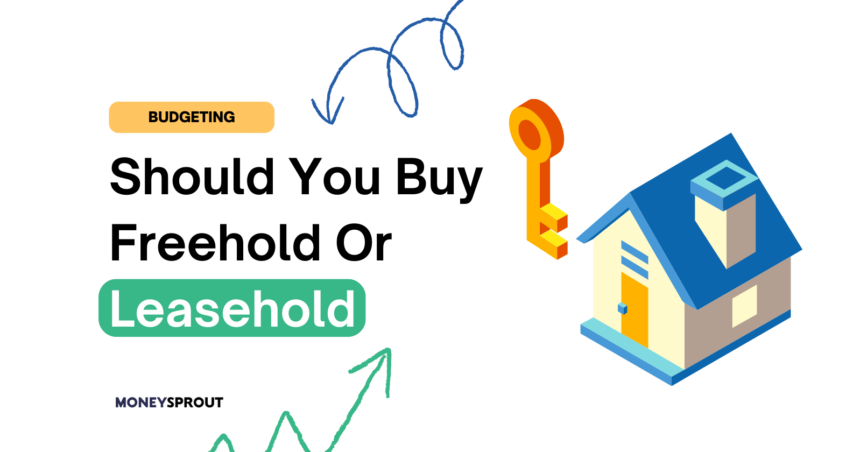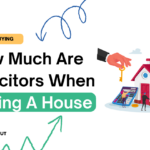When you buy property you do so either as freehold or leasehold, depending on whether you are going to own the whole building and the land it stands on. Make sure you look into this beforehand so that you can make an informed decision and avoid any nasty surprises, like your lease suddenly running out.
Quick Overview
Freehold is where you fully own the building and the land that it is on. With Leasehold you may own the building or part of the building but not the land it sits on. Whether you should buy freehold or leasehold depends on what type of property you are interested in. If you are buying a flat, for example, you may have no choice but to go with a lease.
What is the Difference Between Freehold and Leasehold?
The main (and most simple) difference between freehold and leasehold is that with a freehold property you have full ownership over the building and the land it stands on. With a leasehold property you don’t; either you’ll own the building but not the land, or you only own a part of the building.
But it is a little bit more complex than that. Below is a comprehensive overview of the differences between freehold and leasehold.
Freehold
With a freehold property you own the property and the land it is on outright. This means that you can essentially build what you want on it, as long as you get planning permission. You can also rent or lease some (or all) of it out without having a leaseholder to answer to. Just remember that you may still have to get permission from your mortgage provider.
Typical freehold properties usually fall under these categories:
- Houses – Detached, semi-detached and even terraced houses are usually freehold.
- Farms – Farm owners usually own all their land, but some farms are still leasehold.
- Estates – Large residential properties that come with surrounding land are generally freehold.
Leasehold
A leasehold property is different because you own the property, or at least part of it, but not the land it is on. When you purchase a leasehold property you sign a contract with the party who owns the land, allowing you to live there. Don’t worry about being kicked out of your home. This contract gives you the right to occupy the property for a set number of years, which will be specified in the terms and conditions.
A long leasehold is any lease that runs for more than 21 years and a short lease runs for any length of time under this. However, many leases can run for tens or even hundreds of years, giving you security during your lifetime. It is worth remembering that when a lease term runs out, the owner can take back possession of the property.
Common types of leasehold properties include:
- Flats – You may not own the building if your property only counts as a section of it.
- Shops – It is common for people who run shops to own part of a large, commercial property.
- Pubs and restaurants – Pub and restaurant owners will often buy the building but lease the land it is on from developers.
Note: As a leaseholder, you can still sell your property before the lease is up. The lease can transfer to the new owner.
Should I Buy Freehold or Leasehold?
When you are looking to buy property you will need to decide whether you should buy freehold or leasehold. This depends on your personal circumstances, like whether you are looking for residential property or business premises, as well as whether you want a flat or a house. Flats can be difficult to buy freehold, unless the residents each own a share of the lease.
Whatever your circumstances, there are some advantages and disadvantages to both that you should consider carefully.
Advantages of Freehold
- Full ownership – You fully own the building and the land it is on. This means that you can rest easy in the security of never being forced to vacate – just as long as you make any mortgage repayments.
- Can make structural changes – The building belongs to you so you have the freedom to make any structural changes you wish. This includes adding a permanent extension to your home, like an extra bathroom or office, as well as renovating your attic or basement.
- No lease fees or admin – Once you have exchanged contracts on your freehold property you’ll have completed all the administrative work and paid all the costs involved. So, you won’t have to worry about them anymore.
- Flexibility – Any decisions about what to do with the property are entirely down to you. This is especially beneficial if you want to develop the land further, sublet or even run a business from your home.
Disadvantages of Freehold
- More responsibility – You bear all the responsibility of the building and the land surrounding your property. This includes any structural upkeep or land maintenance.
- More expensive – Since they come with full ownership of the land, freehold properties can be more expensive than leasehold ones.
- Not necessarily more security – You might not have more security in a freehold property than in one with a long lease because the owner can’t ask you to move out until the lease number reaches zero.
- Insurance costs – You will have to pay for both buildings and contents insurance yourself, which can be expensive.
Pros of Leasehold
- Generally cheaper – Leasehold properties can be cheaper to purchase than freehold ones. This might be worth thinking about if you are a first-time buyer considering a flat over a house.
- Less responsibility – You don’t have the responsibility of structural or grounds maintenance, giving you less things to worry about.
- Long leases offer security – There is still the security that you can’t be kicked out of your home until the lease is up. With long leases, this could be for much longer than your lifetime, even hundreds of years.
Cons of Leasehold
- Don’t own – You don’t own the land that your property stands on, or potentially even the full building, which many people don’t like the idea of.
- Can’t make structural changes – Since you don’t have full ownership, you can’t make any structural changes or develop the land as you like.
- Lease admin and costs – Being a leaseholder can come with extra fees, such as paying a solicitor to check the contract or making monthly payments towards the upkeep of the building your flat is in. You will also have to spend time doing admin on your lease.
- Restrictions – Many leases come with restrictions. Common examples are prohibiting you from subletting or running a business out of a residential property.
If I am a Leaseholder, Can I Buy the Freehold?
As a leaseholder, you might be able to buy the freehold. At the very least you can look into and ask the owner if they would be willing to sell. If they say no, you do have some options to negotiate with them.
For instance, there is a statutory procedure that gives people who own their flats but lease the building they are in the right to buy the freehold. This right is only accessible for the flat owners as collective and available under specific circumstances. You should ask a solicitor for advice.
If you are a leaseholder in your home you might also be allowed to purchase the lease by law. Again, seek legal advice to help with your individual circumstances.
How Much Does it Cost?
How much it costs to buy a lease depends on the value of the land. But generally speaking, the shorter your lease, the more expensive it will be to purchase. Keep in mind that you will also have to pay legal costs, for a valuation, stamp duty and for the cost of adding your name to the Land Register.
Final Thoughts
While many people prefer to purchase a house and the land it stands on outright, this may not be the best course of action for everybody. Many flats are offered alongside a lease for the building, as are commercial spaces for shops and restaurants. Whether you should go leasehold or freehold depends on your circumstances. Just make sure you check the length of the lease and the terms and conditions carefully before signing a contract.
Read More From Money Sprout:




